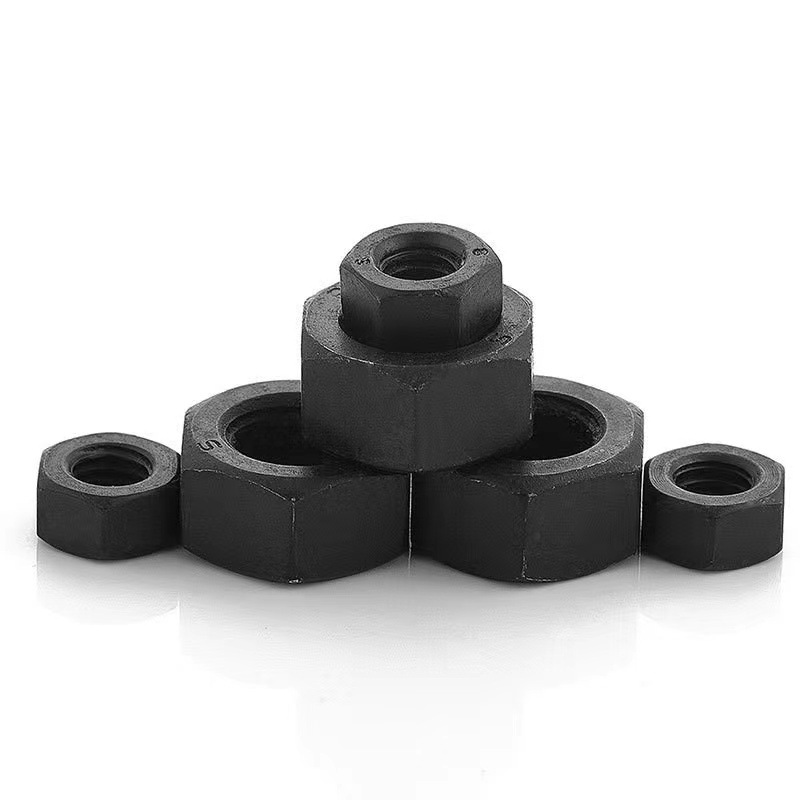

High-Quality Neoprene Washers for Optimal Sealing and Durability in Various Applications
Nov . 07, 2024 18:08 Back to list
High-Quality Neoprene Washers for Optimal Sealing and Durability in Various Applications
The Versatile Applications of Neoprene Washers
In the world of materials and engineering, neoprene washers stand out as indispensable components in a variety of applications. Known for their unique properties, these washers are widely used in several industries, from construction to automotive, due to their resilience, flexibility, and chemical resistance. This article explores the essential characteristics, uses, and advantages of neoprene washers, showcasing why they are a popular choice among professionals.
What are Neoprene Washers?
Neoprene, a synthetic rubber, was first developed in the 1930s and has since become a staple material in many industrial applications. Neoprene washers are flat discs made from this highly durable material, designed to create a seal in various assemblies. They come in a range of sizes and thicknesses, which makes them suitable for numerous applications where sealing and cushioning are critical.
Key Properties of Neoprene Washers
1. Chemical Resistance Neoprene is known for its resistance to oil, gasoline, and various chemicals. This property makes neoprene washers ideal for applications in automotive and industrial settings, where exposure to chemicals is common.
2. Weather Resistance Neoprene’s ability to resist degradation from ultraviolet (UV) light and ozone makes these washers suitable for outdoor applications. They can withstand extreme weather conditions, including heat, cold, and humidity, which is particularly beneficial in construction and marine environments.
3. Flexibility and Elasticity One of the standout characteristics of neoprene is its flexibility. Neoprene washers can compress and expand without losing their shape, providing a reliable seal that prevents leaks and protects against dust and moisture.
4. Durability Neoprene washers are tough and durable, allowing for long-term use without the need for frequent replacements. This durability translates into cost savings over time, making them an economical choice for many applications.
Common Applications of Neoprene Washers
neoprene washers

1. Automotive Industry In vehicles, neoprene washers are used in fuel systems, for sealing fuel tanks and oil filters. Their resistance to oil and high temperatures makes them ideal for these applications, where leaks could lead to severe problems.
2. Plumbing Neoprene washers are extensively used in plumbing systems as seals in faucets, valves, and fittings. They prevent water leaks, ensuring that connections remain watertight and functional, thus maintaining the efficiency of the plumbing system.
3. Electrical Applications In electrical assemblies, neoprene washers serve as insulators and shock absorbers. They help protect sensitive electronic components from vibration and moisture, extending the life of electrical devices.
4. Construction Neoprene washers are commonly used in the construction industry for sealing windows, doors, and roof structures. Their weather resistance is particularly advantageous for outdoor applications, where exposure to the elements is inevitable.
5. Marine Applications With their ability to withstand saltwater and harsh marine environments, neoprene washers are a go-to choice for boat and marine equipment. They are used in applications ranging from small boat fittings to larger offshore machinery.
Advantages of Using Neoprene Washers
The choice to use neoprene washers comes with numerous advantages. Their longevity reduces the need for regular maintenance and replacements, while their versatility allows for use in various environments and applications. Additionally, the cost-effectiveness of neoprene, combined with its excellent sealing properties, provides a reliable solution for engineers and manufacturers.
Moreover, neoprene washers can be tailored to specific needs, with custom sizes and thicknesses available to accommodate different projects. This adaptability makes them suitable for unique applications that may not be covered by standard components.
Conclusion
Neoprene washers exemplify the perfect blend of durability, flexibility, and chemical resistance, making them an essential component across multiple industries. Their ability to perform reliably under challenging conditions highlights their importance in ensuring the efficiency and safety of various systems. As industries continue to evolve and innovate, neoprene washers will undoubtedly remain a crucial element in the toolkit of engineers and manufacturers alike.
Latest news
-
High-Strength Hot-Dip Galvanized Bolts-Hebei Longze|Corrosion Resistance&High Strength
NewsJul.30,2025
-
Hot Dip Galvanized Bolts-Hebei Longze|Corrosion Resistance&High Strength
NewsJul.30,2025
-
Hot Dip Galvanized Bolts - Hebei Longze | Corrosion Resistance, High Strength
NewsJul.30,2025
-
High-Strength Hot Dip Galvanized Bolts-Hebei Longze|Corrosion Resistance, Grade 8.8
NewsJul.30,2025
-
Hot Dip Galvanized Bolts-Hebei Longze|Corrosion Resistance,High Strength
NewsJul.29,2025
-
High-Strength Hot Dip Galvanized Bolts - Hebei Longze Metal Products Manufacturing Co., Ltd.|corrosion resistance&high strength
NewsJul.29,2025

